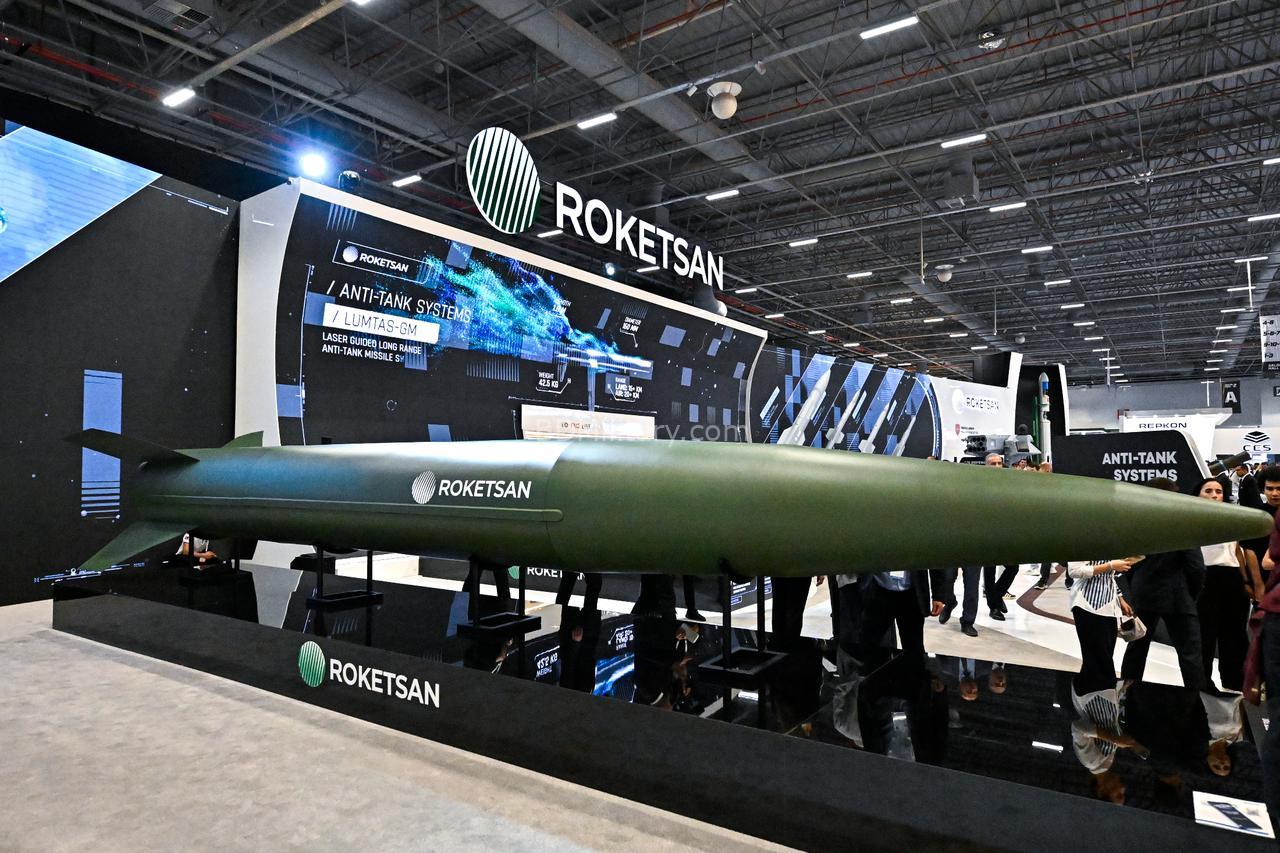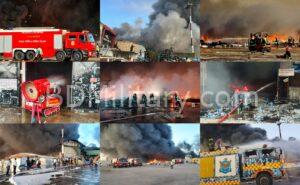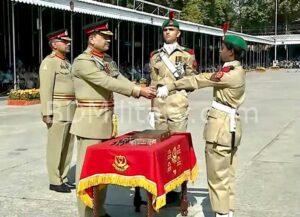After years of polite but limited engagement, Bangladesh and Türkiye are entering a new era of purposeful defence cooperation — one centred on industrial collaboration, capacity-building, and technological exchange.
Since the political transition in Dhaka, relations have accelerated across the board. What had long been a cordial but cautious relationship is now transforming into a structured partnership that places equal emphasis on strategic autonomy and defence industrialisation.
Defence Framework Nearing Completion
Diplomatic and defence sources confirm that the two governments are close to finalising a “Defence Framework for Cooperation” — a comprehensive agreement that would consolidate years of scattered memorandums into a single, actionable framework.
The draft document, prepared by Dhaka, has already been dispatched to Ankara for final review and is expected to headline Bangladesh Army Chief General Waker-uz-Zaman’s official visit to Türkiye in November 2025.
Unlike past agreements, this framework is designed to institutionalise collaboration in joint production, training, technology transfer, and logistics support. If signed, it will mark Bangladesh’s first integrated defence partnership outside its traditional network of suppliers and signal a strategic realignment towards greater industrial self-reliance.
Modernising BOF with Turkish Support
During his visit to Dhaka in July, Haluk Görgün, President of the Defence Industry Agency (SSB) of Türkiye, held detailed meetings with Bangladeshi officials on upgrading the Bangladesh Ordnance Factory (BOF).
Talks centred on joint production models, technology transfer, and establishing a long-term support framework to strengthen local manufacturing capacity.
A senior Bangladeshi defence official involved in the discussions told bdmilitary.com:
“We’re looking beyond procurement. The goal is to build manufacturing capacity with foreign partnership, and Türkiye has both the technology and the willingness to collaborate.”
Ankara’s success in developing indigenous platforms — such as the Bayraktar TB2, Anka-S, T-129 ATAK, and Korkut air defence system — makes it a valuable partner for Bangladesh, which seeks to accelerate its modernisation under Forces Goal 2030.
The BOF, long dependent on imported machinery and components, could benefit from Türkiye’s modular production approach and strong ecosystem of private defence firms like ASELSAN, Roketsan, and Otokar.
Broadening the Supplier Base
For decades, Bangladesh has relied heavily on a narrow circle of suppliers — primarily China for air and naval systems and Russia for older platforms and munitions. Engagement with Türkiye provides an opportunity to diversify sourcing, access NATO-compatible systems, and establish more flexible procurement mechanisms.
Türkiye’s proven expertise in unmanned systems, armoured vehicles, guided weapons, and battlefield communications complements Bangladesh’s operational needs. Ankara also offers strong after-sales support and a readiness to localise production — advantages often missing from existing supplier relationships.
According to defence analysts in Dhaka, early-stage discussions include cooperation in infantry weapons, tactical vehicles, and surveillance systems. Turkish companies have also expressed interest in co-producing small arms and ammunition through BOF and Bangladesh Machine Tools Factory (BMTF).
Political Reset Underpins Military Diplomacy
The surge in defence diplomacy has been facilitated by a broader political reset between Dhaka and Ankara. Relations had cooled in recent years due to ideological and geopolitical divergence, but the new administration in Dhaka has restored a pragmatic tone to foreign policy.
Türkiye was among the first nations to congratulate Chief Adviser Dr Muhammad Yunus following his appointment. President Recep Tayyip Erdoğan personally called to express support, while First Lady Emine Erdoğan conveyed her greetings soon after.
This early outreach set the stage for a flurry of diplomatic activity. Between January and October 2025, more high-level visits took place than in the previous five years combined — a clear indicator that both capitals now see tangible value in the relationship.
Sequence of Key Engagements in 2025
- January: Turkish Commerce Minister Omer Bolat visits Dhaka for trade and industrial talks.
- February: Foreign Secretary (East) Nazrul Islam travels to Ankara for consultations on defence, finance, and technology.
- April: Foreign Affairs Adviser Touhid Hossain meets Foreign Minister Hakan Fidan at the Antalya Diplomacy Forum.
- July: Defence Industry President Haluk Görgün visits Dhaka to discuss industrial cooperation and training.
- October: Deputy Foreign Minister A. Beris Ekinci leads the first Foreign Office Consultation (FOC) between the two countries since 2019.
- November (upcoming): Army Chief General Waker-uz-Zaman is scheduled to visit Türkiye to finalise the defence cooperation framework and sign several project-level agreements.
Expanding Industrial and Economic Linkages
While defence cooperation remains central, the partnership is expanding into broader industrial domains. The Bangladesh Investment Development Authority (BIDA) has initiated talks with Turkish firms across shipbuilding, textiles, electronics, and energy infrastructure.
The Bangladesh–Türkiye Joint Economic Commission (JEC) is expected to convene in February 2026 to formalise several of these initiatives.
Bangladesh’s Ambassador to Ankara, Amanul Haque, described the evolving relationship as one grounded in “mutual confidence and capacity building.”
“The Turkish side recognises Bangladesh’s industrial potential and political stability. This has opened the door for deeper cooperation in defence and beyond,” he noted.
Strategic and Regional Implications
Both countries are navigating a shifting global order and pursuing more diversified partnerships.
For Bangladesh, Türkiye represents a third strategic axis — complementing ties with China while avoiding overdependence on any single partner. For Türkiye, Bangladesh is a gateway to South Asia’s growing defence and industrial markets, as well as a stable, moderate partner in the Islamic world.
According to former ambassador Shafiullah,
“Türkiye views Bangladesh as a bridge between South and Southeast Asia — a politically stable nation with industrial ambition and strategic depth.”
For Dhaka, the Turkish model of gradual indigenisation — where the state nurtures local firms under a coordinated defence policy — offers a template for replicating within BMTF, BOF, and the broader national industrial ecosystem.
From Customer to Partner
If the Defence Framework for Cooperation is signed as expected, it will mark a defining moment in Bangladesh–Türkiye relations.
No longer confined to buyer-seller transactions, the partnership is evolving into one based on co-development, local manufacturing, and mutual strategic benefit.
For Bangladesh, it represents a pathway towards technological self-reliance and industrial maturity. For Türkiye, it provides a foothold in South Asia’s expanding defence landscape — and a partner aligned in both capability and conviction.
As one senior defence analyst in Dhaka observed:
“This partnership signals a shift in Bangladesh’s defence philosophy — from acquisition to collaboration, from dependence to design.”

Ayesha Farid is a regional security specialist focusing on South Asia, with over a decade of experience analysing inter-state tensions, cross-border insurgency, and regional power dynamics. She has worked with leading policy think tanks and academic institutions, offering nuanced insights into the complex security challenges shaping the subcontinent. Ayesha’s expertise spans military doctrines, border disputes, and regional cooperation frameworks, making her a vital contributor to BDMilitary’s coverage of South Asian strategic affairs. She leads the Geopolitics & Diplomacy section at BDMilitary. Ayesha holds a dual master’s degree — a Master in International Relations from the IE School of Politics, Economics & Global Affairs, Spain, and a Master of Public Policy from the Munk School of Global Affairs, University of Toronto, Canada — combining deep academic insight with practical policy expertise.


